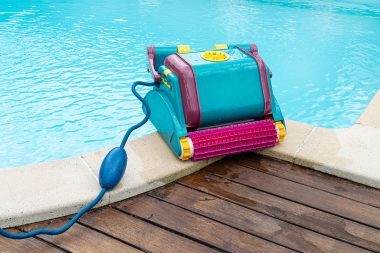Top blog articles
Small puddles of water, damp and musty air or moist wall surfaces in your basement are signs that this space in your home is facing water leakage issues. Now, what starts as a minor wet spot can often progress to create bigger problems in the long run. However, with the implementation of some smart basement waterproofing solutions, you can prevent as well as solve all kinds of wet basement problems, like leaks, humidity mold, and musty smells. But, before introducing you to the common basement waterproofing methods, let us try to answer some of the common questions posted by our customers.
Read More: Helpful Tips for Your Basement Renovation
How Much Does it Cost to Waterproof a Basement?
Just like calculating the costs of any home renovation project, estimating the expenses involved in basement waterproofing also involves several factors. It depends mainly on the extent of the project. Waterproofing contractors can charge around $4000 to seal a basement or foundation walls. Small repairs may start from as low as $600. If you go for an extensive revamp, such as tackling the foundation of the home or installing a French drain or new gutters, your cost may go up to $10,000 or more.
Does Waterproofing a Basement Work?
Of course! Basement waterproofing ensures that leakage water is directed outwards to a sump pump. A complete exterior waterproofing project — which involves excavating the bottom of your foundation, adding a foolproof drainage system, and protecting your exterior walls with waterproofing coatings — shall prevent any kind of structural damage from moisture.
Can You Seal a Basement from the Inside?
It is not necessary that you always need to opt only for a comprehensive exterior waterproofing project. If the leakage is due to damp soil surrounding your house, simply waterproofing your interior walls is sufficient. Therefore, the first step is to locate the source of leakage so that you don’t overspend when you seek to keep your basement dry. And this is what we shall try to address in the following sections.
What Are the Essential Steps for Basement Waterproofing?
Check Your Surrounding Soil & Drainage System
Poorly constructed drains and soil that retains water can lead to the build-up of moisture in your basement. This accumulated water then seeps into your home via the foundation.
Check Your Gutters
Strange as it may sound, sometimes most of the bottom problems begin at the top. Therefore, have a look at your gutters and note if they are functioning properly and directing rainwater away from your foundation. If not, water will again make its way into your house.
Check the Slope
See if your ground angle points away from the house in a downward direction. If it is the opposite, moisture will become stagnant around your foundation.
Note the Hydrostatic Pressure
The hydrostatic pressure of water causes moisture to force itself through cracks on the basement walls and floors. Sometimes, this pressure is so great that it can result in the appearance of new cracks.
Look Out for Cracks in Your Basement:
Obviously, this is the most common reason for moisture accumulation. Cracks on the walls, windows, ceiling, and floor easily offer a perfect entry point for water, resulting in a wet basement.
Now that you know the basic causes behind moisture accumulation in the basement and the various sources for water seepage, let’s guide you through the best basement waterproofing methods.
Read more: Top Things To Do To Weatherproof Your Home
What Are the Best Basement Waterproofing Methods?
Interior Waterproofing
Interior waterproofing methods are the most simple and cost-efficient. They are employed to fix cracks or water-entry points on the inside surface via sealants or coatings — after locating the source of moisture seepage.
Exterior Waterproofing
Exterior methods are much more comprehensive and costly as they tackle the root of the problem. You should always take the help of experienced professionals when embarking on this category of projects. The steps involved here include excavation of the surrounding soil using heavy tools and machinery. After this, workers apply a waterproof sealant on the external surface of the walls.
Another step can be to re-install your gutters if they are clogged and filled with debris. Usually, homeowners undertake this category of waterproofing technique during the construction or renovation phase.
Fixing the Drainage
If you have a drainage system that is not functioning efficiently, it is better to replace it. When the issue is minor, simple repair shall suffice. However, if the issue is major, you might require to overhaul the entire drainage network and install a new drainage system.
Read more: Disaster proof homes
Conclusion
Basement waterproofing methods may differ from house to house as the situations for every home are different. Moreover, if you ignore the problem, it might progress to cost you heavily in the long run. Therefore, our recommendation is to not delay and search for a solution immediately. However, the best solution is to waterproof your home at the beginning itself. After all, prevention is always better than cure!
Read more: What You Need To Know Before Buying A Home With Water Damage










Your opinion matters, leave a comment
Comments
Thank you for explaining what is involved in waterproofing a basement. My brother has had a lot of problems with his basement flooding, but they really need that space for storage and other things. They’ll have to see if they can get someone who does basement waterproofing to help them.
Thank you for saying that waterproofing a basement works to prevent leakage. My brother has a basement that keeps flooding. I’ll be sure to recommend that he get it waterproofed right away.
It has been raining a lot where I live at the moment. I have been considering getting my basement waterproofed. I liked what you said about how it would be smart to think about how to protect the outside of your basement. It is good to know that I will want to think about applying a sealant to my wall.
You mention that you need to find the source of the leak before you can waterproof the basement. Is repairing a crack as simple as putting a filler in? We would like to waterproof our basement, so we can use the space more.
Thanks for helping me learn more about basement waterproofing! My aunt gave my mom one of her old properties and after seeing ads about waterproofing around town, I believe the house needs something like this. The idea of using a method that can fix cracks or any water-entry points using sealants or coatings is very convenient. I should share this with her so she’s aware of how basement waterproofing works.
Make a secure basement is crucial for me as a mom for three kids. Mold in walls for water leaks freaking me out. The expense worth any penny